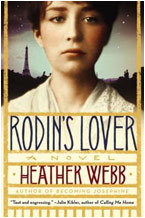 No one really likes writing a query. Yes, it’s a different skill set from novel writing, but it’s an equally important one to learn if you want to snag an agent and land a book deal. It’s really just a form of pitching yourself and your book. If you can’t do that for yourself, who will? No one. So quit your moaning and bang out a few versions. Find another writer or query forum to give you feedback. (I also do this, by the way. See my EDITING page.)
No one really likes writing a query. Yes, it’s a different skill set from novel writing, but it’s an equally important one to learn if you want to snag an agent and land a book deal. It’s really just a form of pitching yourself and your book. If you can’t do that for yourself, who will? No one. So quit your moaning and bang out a few versions. Find another writer or query forum to give you feedback. (I also do this, by the way. See my EDITING page.)
How does one begin? Let’s take a look at query musts and query faux pas.
WHAT’S IN A QUERY?
1. A PROPER GREETING: The only acceptable greeting is “Dear Agent”. This is not the actual word “agent”, but the agent’s name spelled correctly! Do not, under any circumstance, leave off the agent’s name. It shows that you haven’t done your research and it makes the agent feel as if you don’t really give a damn if they rep you or not. Taking the shotgun approach to querying is not a strategy–it’s the fastest way for you to strike out.
2. WHY YOU’RE QUERYING SAID AGENT: Include a sentence or two (max) of why you’re querying that particular agent and why you think they will like your novel. ***Caution, do NOT tell them that you love an author or book they rep and that’s why you’re querying them. Many agents are annoyed by this, especially when you get the information wrong. It makes you come off like a BAD car salesman.
3. TWO PARAGRAPHS ABOUT THE NOVEL: Be sure to open with the protag by name, mention the antag, a couple of poignant details about the plot, as well as what is at stake. Do not go on and on about the dozens of complicated subplots and character development. The goal here is to tempt the agent to want to read more. Basic plot points people.
4. WORD COUNT & GENRE: Don’t forget these important pieces of information! You will likely be deleted if you don’t include it. The agent needs to see that you know where your book fits in the market.
5. A SHORT BIO PARAGRAPH: Describe your publishing credits or previous novels if any, writing groups to which you belong, any writing-related degrees or awards, your platform, or experience that aided you in crafting this particular novel. If you have absolutely nothing to say here, I suggest, at the very least, you join a couple of online groups that you can mention.
WHAT NOT TO INCLUDE
1. BOOK THEMES: Though themes are important, they aren’t plot points, which is the WHOLE POINT of a query. Besides, agents are intelligent people. I guarantee they’ll figure out the themes as they read.
2. GROSS COMPARISONS: You may very well be the next Anne Rice, but don’t compare yourself to her, lest you want your carefully crafted query deleted. This comes off as amateuresque and egotistical. Anne Rice isn’t just an author. She’s a brand. It’s like comparing your church bulletin to the New York Times. It just doesn’t work.
3. YOUR DEGREES, WELL, SOME OF THEM: For clarification, you should always include your degrees if they meet the following criteria: A.) it’s a writing degree of some sort, B.)it’s a degree that boosts your platform, or C.) it’s related to the subject about which you have written. Do NOT include your degree in psychology or math, or communications if you’re writing romance novels. They don’t correlate. Get my drift? Many agents don’t care if you even graduated high school.
4. QUOTES OR PRAISE: It’s great that your friend Kate who’s a journalist loves your book, but to include that info is another rookie move. So is going on about how you’re an excellent writer and that anyone should be so lucky to represent you. BAD MOVE. An agent doesn’t want you to tell them how everyone else feels or how they should feel about your book. They like to decide for themselves.
5. BUTT KISSING: There’s nothing more annoying than obsequiousness. Some agents may not mind because they’re used to it and they skim over your gushing. Others get irritated enough that they delete your query immediately. Rule of thumb–don’t put it in your query.
OTHER TIPS
1. KEEP IT SHORT: Your query should total 350 words or less, but it’s really best to aim for 250 words if you can pull it off. Agents like to see white space. It means they have less to read, which is a good thing when their inboxes are flooded every week.
2. DON’T AGONIZE: over where you should put the word count & genre. This can easily go at the top of the query when you’re talking about why you queried the agent, or right before your bio. Agents have different preferences and it’s impossible to tailor your query to each agent when that information is rarely posted online. Instead, agonize over a concise, well-written query that sparks interest.
3. ONE AT A TIME: Don’t send out a mass query. Again, you’re demonstrating that you don’t give a damn who reps you. This is extremely bad form. An agent-author relationship is a partnership and sometimes becomes a friendship. You wouldn’t ask every guy/girl on the street to be your significant other. An agent is like a significant other. Choose them with care.
4. RESEARCH, RESEARCH, RESEARCH: Research as many agents as possible that rep your genre. MAKE SURE THEY REP YOUR GENRE! Take notes and then select those you would like to query. Then send individualized emails.
Next week we’ll talk about how to get started, look at a couple of winning examples as well as helpful query resources. Also, stay tuned for the QUERY CORRAL coming June 18th. Participate in a blog hop, receive feedback on your query, give help to others, and put your name in the hat for a chance to win a free critique of your opening pages.
6 Comments
Join the conversation and post a comment.














Another great & helpful post Heather! Speaking as someone on the opposite side of the querying fence, I can tell you that I used all of these “dos” in my queries and carefully avoided the “don’ts” and you’re dead on with everything you’ve said. (Not that you needed me to tell you!)
The part about not getting lost in the plot points is really important. Agents want to find new authors, but they also want authors who can describe the plot in VERY short-form and without getting tripped by all the subplots. Some authors object to this, but it’s a skill that only becomes more important with time. My first novel debuts next spring, and the FIRST thing everyone asks me is “What’s it about?”
A long, convoluted answer will glaze their eyes over and won’t have them clicking Amazon when pre-orders go live. It’s the one-sentence hook that grabs them.
I say: “It’s a mystery featuring a ninja detective and his Portuguese Jesuit sidekick. They have to save a geisha accused of murdering her wealthy samurai patron.” Usually, I have them at “ninja detective.” There are subplots & suspects galore, but all that can come in time – the key to the pitch is making the listener want to read more – that’s all your query has to do!
Hey Heather,
It was great meeting you at Backspace. This post on queries is awesome.
I just tagged you for a Lucky 7 Meme! http://erinbradypike.com/2012/06/08/another-lucky-7-meme/
Erin 🙂
Great post as ever, Heather. I struggle with the Dear Agent bit when they expressly tell you to address your submission to, err, ‘submissions’. I write Dear Submissions but it irks me to do so. That said, I have had some positive replies from my ‘Dear Submissions’ but it does still worry me when I can’t find a name. It’s such a mindfield this, isn’t it! I have heard agents say that they do want you to mention people they represent, that it shows you’ve done your research, but then there are as many who find it squirmy. If I have read something and loved it (which is often how I’ve come to that agent in the first place) then I do tend to mention it. I’m worried now!!
Jackie, Don’t worry! LOL. We aren’t mind readers and agents realize this. If your letter is professtional and well-written, they won’t nitpick at some of the details. I think mentioning that you liked one of their author’s work and pointing out how your novel has similar elements because of X, Y, & Z is perfectly okay!
Great post Heather – sincerely helpful to one struggling with the intimidating “Query Letter” issue right now.
And P.S. Susan Spann, you totally had *me* at Ninja Detective. I will totally be looking forward to your book.
Hey lady! Great post, and wonderful meeting you at Backspace!